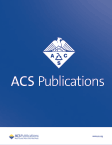摘要 PO4-08-02:在单一医疗系统中对三阴性乳腺癌患者进行基因检测:质量改进项目
IF 3.4
Q2 PUBLIC, ENVIRONMENTAL & OCCUPATIONAL HEALTH
引用次数: 0
摘要
背景:乳腺癌是最常见的癌症类型,也是女性癌症相关死亡的第二大原因。大约 15-20% 的患者在确诊时患有三阴性乳腺癌(TNBC)。TNBC 具有侵袭性,难以治疗,易复发,且死亡率较高。在 TNBC 患者中,BRCA1/2 基因突变的发生率约为 20%(Hartman 等,2012 年)。尽管 TNBC 患者中癌症易感基因的种系突变发生率很高,但许多患者并未接受遗传咨询(GC)或基因检测(GT)。美国国家综合癌症网络(NCCN)指南现在建议所有 TNBC 患者,无论年龄大小,都应接受基因检测,尤其是在聚腺苷二磷酸核糖聚合酶(PARP)抑制剂被批准用于针对 BRCA1/2 基因突变的靶向治疗后。本质量改进 (QI) 项目旨在确定未接受 GT 治疗的 TNBC 患者,并设计一项干预措施,以了解接受 GC 和 GT 治疗的潜在障碍。方法:我们实施了一项 QI 项目,以确定先前确诊的任何阶段(早期或晚期/转移性)的 TNBC 成年患者(18 岁及以上),这些患者既往未接受过 GT 治疗,也没有遗传疾病家族史,且在亨利福特健康乳腺癌诊所接受了积极的随访。研究对象包括在 2015 年 1 月至 2020 年 1 月期间从 Syapse Learning Health Network 数据库中确诊的符合条件的患者。基线信息以及其他数据包括人口统计学、乳腺癌治疗详情、是否提供 GT 和/或 GC 等,均在机构审查委员会批准后通过电子病历审查获得。乳腺癌服务提供者、遗传咨询师和护士导航员每两个月召开一次会议,制定一项干预措施,以联系未接受 GT 和/或 GC 检查的患者。在获得符合资格标准但未接受 GT 和/或 GC 检查的患者名单后,他们的主要乳腺癌医疗机构会通过电话与他们取得联系,询问他们是否愿意在此时接受 GT 和/或 GC 检查,并参与基于问卷的访谈,以了解他们接受 GT 和/或 GC 检查的障碍。结果:在这 5 年中,共有 123 名患者被确诊为三阴性乳腺癌。在实施质量改进项目时,其中 93 名患者正在亨利-福特乳腺诊所接受积极的随访。在接受 GT 和 GC 检查的 9 名患者中,有 2 名患者的 BRCA1/2 基因突变呈阳性。在其余 83 位未接受 GC 或 GT 检查的患者中,有 65 位(78.3%)在病历中没有明确说明原因,有 27 位(32.5%)选择不接受检查,有 23 位(27.7%)在初步评估时被认为不符合条件,有 4 位(4.8%)在初步诊断时乳腺外科医生下达了待处理指令。遗憾的是,在这 83 名患者中,有 29 人在设计干预措施时已经去世。剩下的 54 名患者由他们的乳腺癌肿瘤主治医生联系,以确定他们是否愿意参加问卷访谈。结论根据 QI 项目的结果,我们现在已经制定了一套流程来联系已确定的患者,并再次向他们提供 GT 和 GC 以及参与问卷访谈的机会,以了解检测的潜在障碍。我们还计划在年度专题讨论会和大查房期间举办小型会议,提高医生的教育和认识,并制定本机构 TNBC 患者的 GT 和 GC 订单协议。引用格式:Manasi Godbole, Mary Nyhuis, Travis Washburn, Joann Hirth, Haythem Ali.单一医疗系统三阴性乳腺癌患者的基因检测:质量改进项目[摘要]。In:2023 年圣安东尼奥乳腺癌研讨会论文集;2023 年 12 月 5-9 日;德克萨斯州圣安东尼奥。费城(宾夕法尼亚州):AACR; Cancer Res 2024;84(9 Suppl):Abstract nr PO4-08-02。本文章由计算机程序翻译,如有差异,请以英文原文为准。
Abstract PO4-08-02: Genetic testing among patients with triple-negative breast cancer at a single health system: a quality improvement project
Background:
Breast cancer is the most common type and the second leading cause of cancer-related deaths in women. Approximately 15-20% of patients have triple-negative breast cancer (TNBC) at diagnosis. TNBC is aggressive, difficult to treat, prone to relapse, and associated with an increased mortality rate. The incidence of BRCA1/2 mutation is about 20% in patients with TNBC (Hartman et al. 2012).
Despite the high prevalence of germline mutations in cancer susceptibility genes among TNBC patients, many do not received genetic counseling (GC) or genetic testing (GT). National Comprehensive Cancer Network (NCCN) guidelines now recommend GT for all patients with TNBC, regardless of age, especially after the approval of Poly Adenosine diphosphate Ribose Polymerase (PARP) inhibitors for targeted therapy against BRCA1/2 mutations.
The aim of this quality improvement (QI) project was to identify patients with TNBC who did not receive GT and design an intervention to understand potential barriers to receiving GC and GT.
Methods:
We implemented a QI project to identify previously diagnosed adult patients with TNBC (18 years and older) of any stage (early or advanced/metastatic) without prior GT or family history of genetic disorders with active follow-up at the Henry Ford health breast cancer clinic. Eligible patients diagnosed between January 2015 and January 2020 from the Syapse Learning Health Network database were included. Baseline information as well as additional data including demographics, breast cancer treatment details, and whether GT and/or GC was offered or not was obtained through electronic health record review after institutional review board committee approval. Bi-monthly meetings were held amongst breast cancer providers, genetic counselors, and nurse navigators to develop an intervention to contact the patients who did not undergo GT and/or GC. After obtaining the list of patients who did not undergo GT and/or GC despite meeting eligibility criteria, they were contacted by their primary breast cancer providers via telephone regarding their willingness to obtain GT and/or GC at this time and participate in a questionnaire-based interview to understand barriers towards the same.
Results:
In the 5 years, a total of 123 patients were noted to have been diagnosed with triple-negative breast cancer. Of these, 93 patients were actively being followed at the Henry Ford breast clinic at the time of the QI project. 2 of the 9 patients who underwent GT and GC were positive for BRCA1/2 mutation. Of the remaining 83 patients that did not receive GC or GT, 65 (78.3%) had no clear reason explained in the chart, 27 patients (32.5%) chose not to get tested, 23 (27.7%) were not deemed to be eligible upon initial assessment and 4 (4.8%) had pending orders placed by breast surgeons upon initial diagnosis. Unfortunately, 29 of these 83 patients were noted to have been deceased when the intervention was being designed. Remaining 54 patients were contacted by their primary breast cancer oncologists to determine their willingness in participating in the questionnaire-based interview.
Conclusion:
Based on the results of our QI project, we have now developed a process to contact the identified patients and renew the offer for GT and GC as well as participation in a questionnaire-based interview to understand the potential barriers to testing. We also plan to improve physician education and awareness by conducting mini sessions during our annual symposium meetings as well as grand rounds and develop a protocol for ordering GT and GC in patients with TNBC at our institution.
Citation Format: Manasi Godbole, Mary Nyhuis, Travis Washburn, Joann Hirth, Haythem Ali. Genetic testing among patients with triple-negative breast cancer at a single health system: a quality improvement project [abstract]. In: Proceedings of the 2023 San Antonio Breast Cancer Symposium; 2023 Dec 5-9; San Antonio, TX. Philadelphia (PA): AACR; Cancer Res 2024;84(9 Suppl):Abstract nr PO4-08-02.
求助全文
通过发布文献求助,成功后即可免费获取论文全文。
去求助
来源期刊

ACS Chemical Health & Safety
PUBLIC, ENVIRONMENTAL & OCCUPATIONAL HEALTH-
CiteScore
3.10
自引率
20.00%
发文量
63
期刊介绍:
The Journal of Chemical Health and Safety focuses on news, information, and ideas relating to issues and advances in chemical health and safety. The Journal of Chemical Health and Safety covers up-to-the minute, in-depth views of safety issues ranging from OSHA and EPA regulations to the safe handling of hazardous waste, from the latest innovations in effective chemical hygiene practices to the courts'' most recent rulings on safety-related lawsuits. The Journal of Chemical Health and Safety presents real-world information that health, safety and environmental professionals and others responsible for the safety of their workplaces can put to use right away, identifying potential and developing safety concerns before they do real harm.
 求助内容:
求助内容: 应助结果提醒方式:
应助结果提醒方式:


